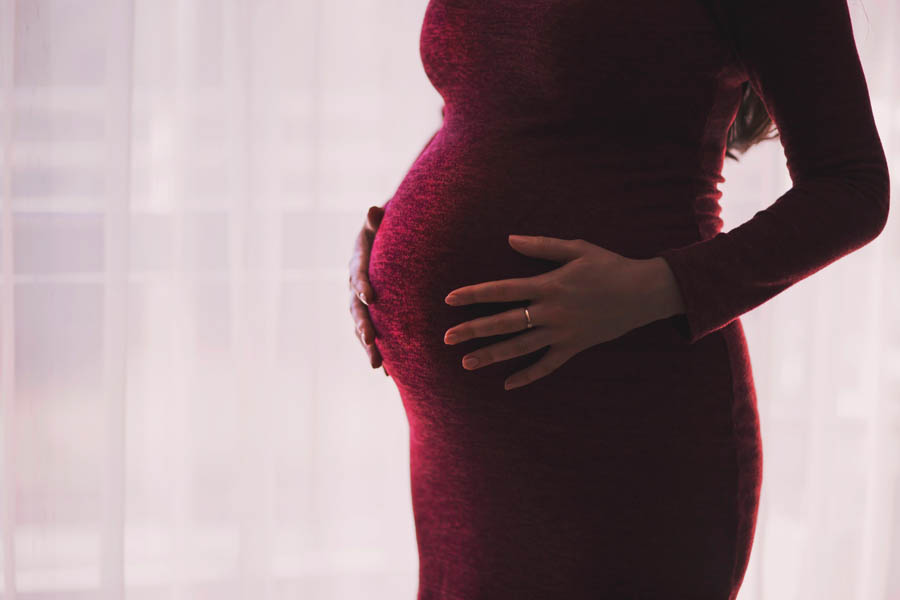(SBA List) In an effort to sell abortions, the abortion industry is trying to scare women into thinking it is unsafe to be pregnant during the coronavirus pandemic.
Of course, they’re also trying hard to get restrictions loosened on chemical abortions so mothers can self-administer while in lockdown or quarantine.
To combat the abortion lobby’s extreme agenda, please join Susan B. Anthony List, Charlotte Lozier Institute, and Life Issues Institute in a social media blitz TOMORROW, Thursday, March 26, from 1 p.m. – 4 p.m. Eastern, to flood Facebook, Instagram and Twitter with positive messages to empower women and families to choose LIFE.
[Click here to subscribe to Pregnancy Help News!]
The campaign will be using #ChooseHope (in addition to #COVID19, #coronavirus and #ProLife).
It’s important for all pro-life supporters taking part to use the same hashtag so the message will carry even further and get into social media feeds.
The key messages are:
- Pregnant mothers don’t need to be scared of coronavirus. Free support is available
- Loosening restrictions on telemedicine abortions is dangerous
- Calling on state and federal government to ensure abortions not permitted to continue during this time of crisis due to:
a. overwhelming emergency rooms due to abortion complications
b. reducing urgently-needed medical supplies for treating people with coronavirus
Tweet This: Pregnant mothers don’t need to be scared of coronavirus. Free support is available
Tara Sander Lee, Ph.D., a scientist with 20 years’ experience in academic and clinical medicine with an emphasis on the cause of pediatric disease, shares eight reasons why pregnant women can remain hopeful during the coronavirus crisis.
Among them:
Pregnant women do not appear to be at a higher risk of infection compared to the average healthy adult.
Pregnant women are at risk for any viral respiratory infection, but there is not enough information to currently know whether pregnant women have a greater chance of getting sick from COVID-19 than the general public. According to the CDC and an article in the American Journal of Obstetrics and Gynecology, those at greatest risk of hospitalization are not pregnant women, but instead are more likely to be male, older adults (>65 years), and have underlying medical conditions (heart disease, lung disease, diabetes).
There is no evidence that coronavirus is transferred from mother to baby during pregnancy, unlike other viral infections such as Zika and Ebola.
Three independent studies out of China published in the journals Lancet, Translational Pediatrics, and Frontiers in Pediatrics all report the same finding: there is no evidence of vertical transmission in mothers diagnosed during late pregnancy with COVID-19 pneumonia. The coronavirus was not detected in the amniotic fluid, cord blood, breast milk, or newborns. The CDC has issued guidance on breastfeeding for mothers with confirmed COVID-19 or under investigation for COVID-19.[1]
There have been no cases of maternal deaths in pregnancy.
In a detailed analysis of all published reports of 38 pregnant women with COVID-19, of whom 37 had confirmed SARS-CoV-2 infection, there were no cases of maternal deaths.[2] The majority of women underwent cesarean sections and there were co-morbid conditions present in some of the women, but they did not apparently result in life-threatening maternal COVID-19 related disease.
Women infected with coronavirus during pregnancy deliver live babies.
Recent studies from China in the journals Lancet and Translational Pediatrics report that 100% of pregnant women who develop COVID-19 pneumonia in their 3rd trimester go on to have live births.
There have been no deaths from coronavirus in newborns to date
According to the CDC, “We do not know at this time what if any risk is posed to infants of a pregnant woman who has COVID-19. There have been a small number of reported problems with pregnancy or delivery (e.g. preterm birth) in babies born to mothers who tested positive for COVID-19 during their pregnancy. However, it is not clear that these outcomes were related to maternal infection.”
There are things you can do now to reduce your risk of infection during pregnancy.
The virus is spread through respiratory droplets (when an infected person coughs or sneezes). You should avoid large crowds, avoid people who are sick, wash your hands often, and work from home if possible.
Abortion pill reversal is possible.
If you were scared and took the first dose of the abortion pill (Mifeprex or RU-486), but are now regretting that decision, there is still hope. Abortion pill reversal is possible.[3] Call the Abortion Pill Rescue 24/7 Helpline at 877-588-0333 as soon as possible. Every minute counts.
Click HERE for the full list.
Join the social media campaign - empower women for life!
Editor's note: The material in this message was released/published by Susan B. Anthony List. Pregnancy Help News is a project of Heartbeat International, which manages the Abortion Pill Rescue Network.
[1] https://www.cdc.gov/coronavirus/2019-ncov/prepare/pregnancy-breastfeeding.html
[2] Society for Maternal Fetal Medicine reports one case in 18 women who required intubation and mechanical ventilation.
[3] Delgado G, C.S., Davenport M, et al, A case series detailing the successful reversal of the effects of mifepristone using progesterone. Issues Law Med, 2018. 33: p. 3-14.






